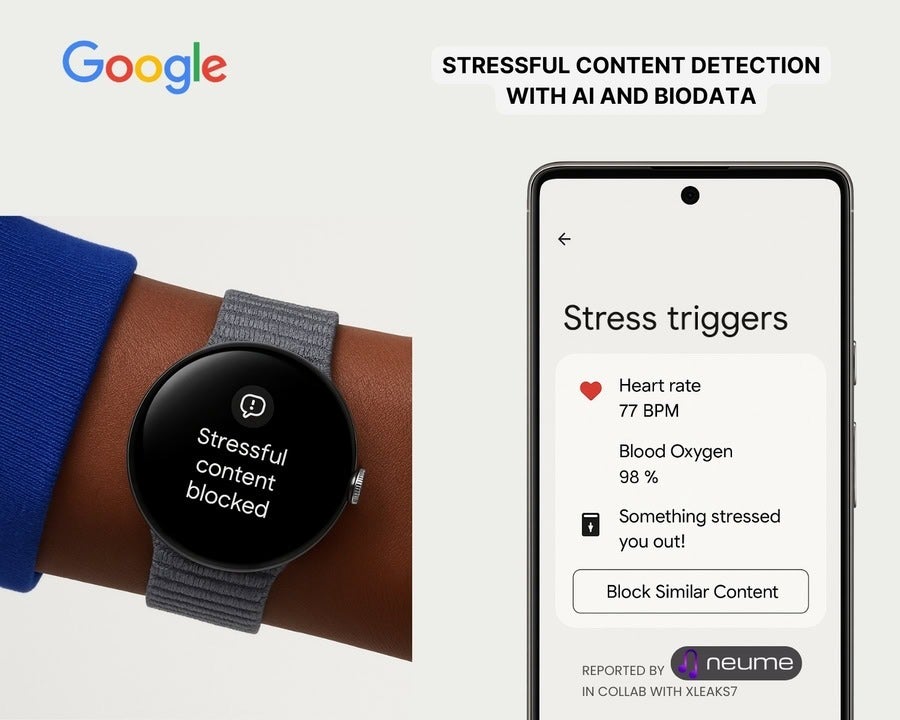Our phones can be a massive source of stress, that’s why we have ways to regulate our time on them these days. Bug Google is working on something new that could give us even more insight into how our phones affect us.
A newly published patent outlines a privacy-friendly AI system that’s designed to link your emotional responses to the apps and content you consume.
Detecting stress in real time and linking it to your screen


Heart racing after late-night news? Google’s system could learn that and suggest better habits.
The patent describes a system that combines biofeedback from wearables (like heart rate, skin response, or sleep quality) with on-screen content analysis to detect what specifically causes users stress.It’s not just about tracking how much time you spend scrolling — it’s about what you’re actually seeing. Google’s AI can break down videos, articles, app interfaces, and even specific words or headlines, then compare that data to your body’s response in real time. The result? A personalized system that learns your unique digital stress triggers.
For example, it might pick up on patterns like:
- Watching late-night political news spikes your heart rate
- Scrolling through certain hashtags leads to poor sleep
- Spending too much time on a certain app raises your stress levels
But perhaps the most intriguing part of the system is that it doesn’t just warn you after stress builds up. Over time, the AI can predict stress-inducing content before you even engage with it, giving you the chance to pause, skip, or prepare.
You can even set custom controls to mute notifications, bypass specific apps or types of content, or receive gentle nudges when you’re entering known stress zones.
The system appears designed with privacy in mind. It runs locally on your device and only analyzes apps you approve — such as a browser, news app, or YouTube. None of your biometric data or browsing history would need to be sent to the cloud.
That means all stress detection happens on-device, adding a layer of security for users worried about how their mental health data is handled.
Not a product (yet)
As with any patent, there’s no guarantee this will make its way into future Pixel phones, smartwatches, or Android releases. But the idea does align with Google’s broader push into personalized, AI-powered health and wellness tools.
With devices like the Pixel Watch and Android’s growing suite of digital wellbeing tools, it wouldn’t be a stretch to see this system integrated into future wearables or Android 16+ software updates.
For now, it’s just a concept — but one that could change how we think about digital stress management.
#Googles #big #trick #figuring #triggers #stress
